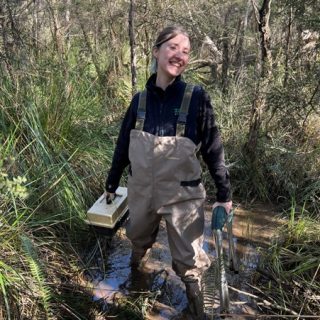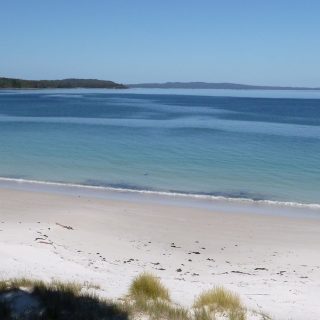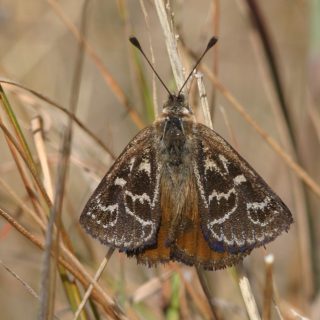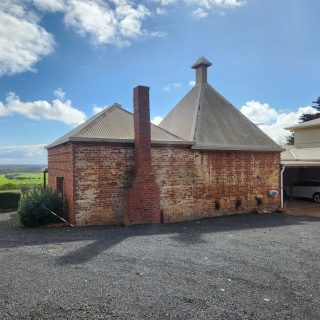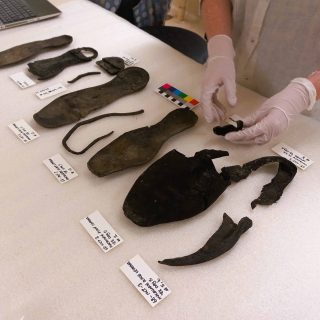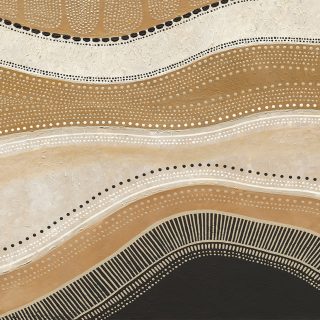Consultant Spotlight: Clare McCutcheon, Ornithology Expert
Meet Clare McCutcheon, Senior Associate Zoologist, and ornithology expert who plays a key role in our offshore wind work.
Clare recently co-won the Champion Ecologist award at the AGM and Awards Night for the Ecological Consultants Association of Victoria (ECAV) and also celebrated 15 years with Biosis.
Her dedication to ecological research and consulting continues to make a lasting impact. To celebrate her achievements, we sat down with Clare to reflect on her career and contributions.
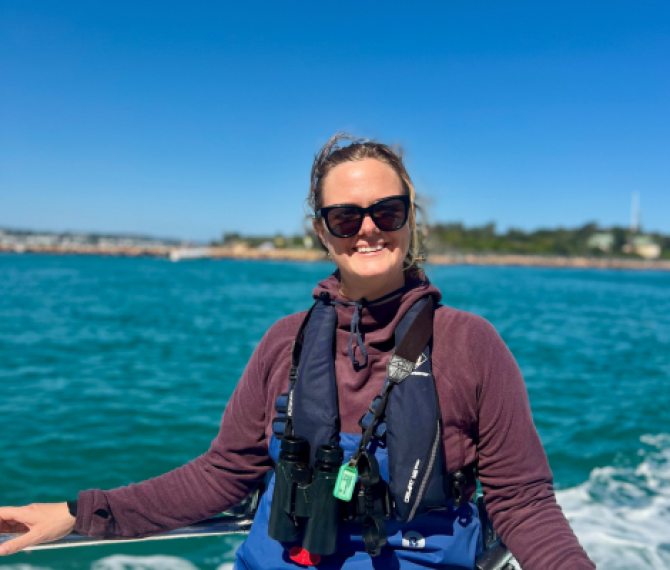
What inspired you to start your career in consulting, and how has your career or Biosis progressed over time?
I have been passionate about nature and wildlife for as long as I can remember. As a child, my bedroom was full of posters of Australian wildlife and all kinds of little nature treasures I had found - seashells, feathers, pressed flowers, shark egg cases, snake skins, you name it. My dad, a passionate life-long naturalist, introduced me to the wonders of the natural world from a very young age. He has memories of me pointing out goannas before I could even write my own name. Later on, I dived into studying Conservation Ecology at university without any idea of what career it might lead to. I certainly had never heard of ecological consulting, which, as it turns out, is the main career path for most ecology graduates.
My first exposure to ecological consulting came when I volunteered on a Rakali survey in the bayside area during my studies, meeting zoologists from Biosis who were leading the survey. I was amazed by the variety in their work – that they could be surveying bayside Rakali one week, and then searching for forest owls the next. After completing my Honours on Little Penguins, an opportunity came up to join Biosis. I started as a Field Zoologist, spending weeks on end in the field and soaking up knowledge from other ecologists. Fifteen years on, as a Senior Associate Zoologist, I provide zoological expertise to inform a wide range of projects, particularly wind energy projects. I’m particularly excited to be part of a working group developing a new open-source avian collision risk model, which builds on the Biosis model that’s been used for over a decade in Australia to assess potential impacts of turbine strike to birds. This will be a much-needed tool to inform the emerging offshore wind industry in Australia and ensure good decision making and planning to assist our transition to renewables whilst minimising impacts to our bird populations.
You recently won the Champion Ecologist award at the AGM and awards night for the Ecological Consultants Association of Victoria (ECAV), what work lead you to receive this award?
The Champion Ecologist award, established by ECAV, recognizes exceptional ecologists who inspire through their skills, knowledge, and leadership. I was absolutely honoured and humbled to be nominated and to jointly win this award at the inaugural industry awards night in August last year.
My work in the offshore wind space, particularly in advocating for comprehensive seabird surveys and assessing avian collision risks, largely led to my nomination. However, I was particularly touched that my nomination also acknowledged some personal values that I hold dear—kindness, integrity, generosity, and a good sense of humour. Building strong, positive connections in this industry is so important, and I truly believe that treating others with kindness, sharing what we’ve learned, and adding a bit of lightness can make all the difference, especially in a field that can sometimes feel intense and competitive. I’m thrilled that these values were recognized, and I continue to believe that humour and warmth go a long way in fostering connection and collaboration.
I was also honoured to jointly win this award with David De Angelis, an exceptional ecologist, herpetologist, environmental educator, consultant, and friend. Congratulations to David, and a huge thank you to the ECAV community for this nomination and award.
What are some of your favourite memories or proud moments from your time so far at Biosis?
I have too many to list! But here are a few notable highlights:
- Spending two weeks in remote South Australia with Ian Smales specifically to assess bird and bat habitat, yet still returning with the longest reptile list ever accumulated in a single field trip, and then trying to find a way to work it into a bird and bat report!
- Wading through remote forest streams at night to survey for the rarest frog in Victoria, the critically endangered Spotted Tree Frog, and then having one leap onto my colleagues sneaker.
- Any trip to the mallee, particularly recording rare and threatened species during surveys in Murray-Sunset National Park, kayaking through the Hattah Lakes to document waterbird responses to environmental water, canoeing along the Murray River at night doing aquatic survey work and participating in a bat dance at a microbat course at Gluepot reserve.
- Working with and learning from the incredible and passionate bunch of people at Biosis, both past and present, particularly Daniel Gilmore, who was a much-loved mentor and friend to me and many others. I’m really proud to have helped establish a scholarship in his honour, which supports an ecology student each year with their studies.
- Organising learning and development trips for the Biosis Victorian ecology team, which have resulted in wonderful memories connecting with colleagues and nerding out in nature together. An impromptu lecture on Grampians/Gariwerd biogeography from Dr Jeff Yugovic on the top of Mt Sturgeon/Wurgarri stands out, as does kayaking along the Goulburn River to a winery lunch with 30 ecologists. I’m really proud to have been part of facilitating these experiences for myself and my team.
If you could go back to the beginning of your career, what would you tell your younger self?
I would tell myself, and any early career ecologists starting out, that you do deserve to be here, and it’s okay to not have all the answers. When I first started out, I often felt like I had to know everything or prove myself in every situation. But over time, I’ve learned that nobody knows it all, and that’s completely normal. In fact, understanding what you don’t know is just as important as knowing what you do. It’s a sign of curiosity, humility, and a willingness to keep learning, which are all essential for a successful career.
I wish I had been less hard on myself about feeling like I should have all the answers right away. In reality, it’s the willingness to ask questions, to seek out answers, and to grow from the experiences—whether they’re successes or failures—that really shapes you as a professional. Embracing uncertainty and being open to learning has made me a better ecologist, a better collaborator, and a better mentor to those just starting out. So, I would tell my younger self to trust the journey, be kind to myself, and remember that figuring things out along the way is a big part of the process!

